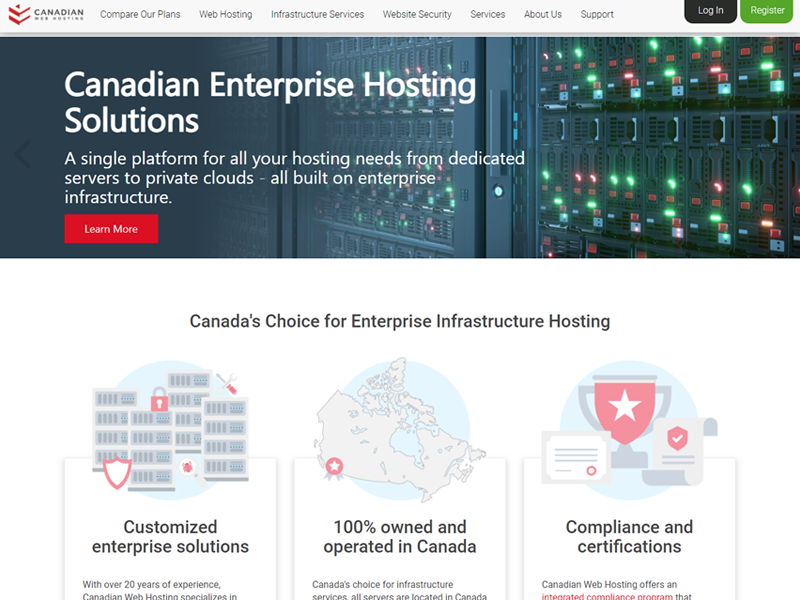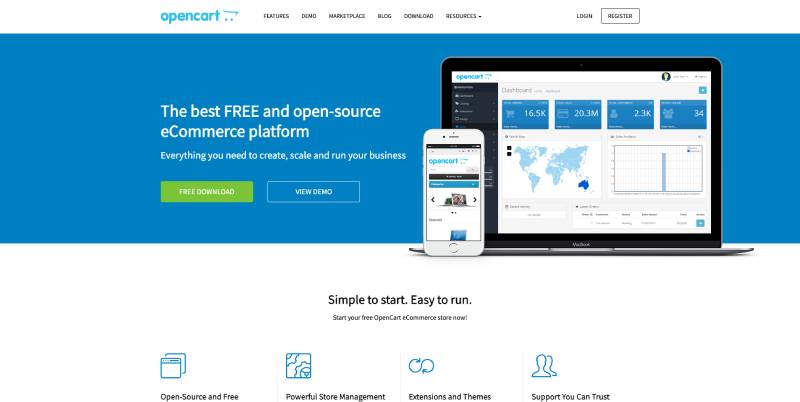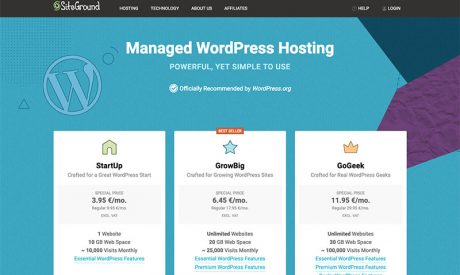Whether you are a small business or large business owner, or anywhere in between, a website is one of the most critical assets for your online presence. The same goes for bloggers and professionals who seek to connect with potential clients through online platforms.
Choosing a good web hosting service is therefore important. A reliable host ensures that your website is up all the time, loads fast, is secure, among other great qualities of the best web hosting companies.
These are some of the factors we look at when doing our research. We have discovered that the most important selection criteria include:
- Performance
- Storage
- Bandwidth
- Features
- Customer support
- Pricing
We dive into these factors and tell you why these are important selection parameters when shopping for reliable all-around web hosting providers.
#1 Performance
The two most important performance factors we consider during our research are speed and uptime.
Speed
Google does not like slow-loading speeds. Users are not patient enough to wait on pages that load slowly. That means that it will be difficult to get meaningful organic traffic if your website is slow.
Our research involves testing website speeds on these hosts to ensure you use a platform that has enough server resources to guarantee fast speeds. Hosting companies with many data centers and CDN have better speed performance than the rest.
Uptime
Uptime is the amount of time your website can be reached. If users can reach your website 24/7 365 days without any downtime, this is considered 100% uptime. However, this is a difficult target for most hosting companies to reach. A reliable web host should guarantee you at least 99.9% uptime.
We check the provider's information on their uptime guarantee but still go ahead to test. We have discovered that some providers do not meet the expectations. You may therefore be misguided by the information on their sites or social media pages. This is why we do all the research and tests to bring you the correct data to help you make purchase decisions.
#2 Storage
Storage also referred to as disk space, is the amount of space you have to store your data in the servers. The data includes text, images, video, and similar resources that you put on your website to showcase to your visitors. The larger your website and data, the more disk space you’ll need.
Some hosts offer different disk size spaces depending on the package you purchase. A more reliable web host is one that offers unlimited disk space at least one package above the starter plan. If you run a small business, large amounts of disk space are not necessary.
We judge web hosts based on the amount of storage they provide relative to the pricing. It doesn't make sense to pay a lot of money and get limited storage space.
#3 Bandwidth
Many people might not know that some hosts have a limit on the size of traffic your website can accommodate in a month. If this limit is exceeded, your website may not display on the web. Some hosts will give you the alternative of paying more to allow more traffic.
We perform tests, particularly on hosts that claim to offer unlimited/unmetered traffic. Once we are satisfied with the results, we can tell you the amount of traffic these hosts can allow per month, as well as any restrictions. This information is crucial for website owners expecting huge amounts of traffic, paid or organic.
#4 Features
Every web hosting provider has features to offer. What distinguishes good hosts from regular providers in the quality and efficiency of these tools, as well as the pricing. Companies that offer free domains, SSL certificates, website migrations, site builders, and similar services are considered favorites in the eyes of users.
We do not just look at the free features offered, but the number of essential features available. Something like a custom cPanel makes it easy for users to manage their platform, and we ensure we bring you, hosts, with user-friendly panels. Other essential features we look out for include backups, one-click installers, CDN, and FTP/SFTP access.
Different hosting types may have a different range of features. For example, some features on VPS hosting may not be available on shared web hosting plans.
We, therefore, look at the number and quality of these features in the context of the hosting types, as well as the pricing. A higher price should give you more scaled features. For example, if you’re getting 100 GB of storage on a lower plan, the disk space should be more on the next higher plan.
Specific users may also be interested in certain features. For example, a business owner planning to host an online store will prefer companies that provide eCommerce platforms like WooCommerce and PrestaShop. Our research on features therefore is conducted based on different angles.
#5 Customer Support
As a rule of thumb, any hosting company that does not have 24/7 customer support is not a dependable provider in our books. They don't have to offer these 24//7 support services across all channels, but they should be accessible 24/7 in at least one of the channels – phone, email, live chat.
Providers with 24/7 365 support across all these channels score major points. We test these channels to confirm if they are indeed available 24/7. We also check on the response time.
We have discovered that many users like using the knowledge base section. Having this section is not enough, it must be comprehensive and cover the most common issues. Users can follow the guidelines to troubleshoot the issues by themselves before reaching out to customer support.
#6 Pricing
Although hosting a website is a worthwhile investment, it doesn't have to cost you an arm and a leg. In addition, the amount you pay should match your expectations in terms of the features that you can access.
We strive to bring our audience the most affordable web hosting providers out there. If a web host is cheap but provides poor quality services, they do not make the cut for our lists. Just because it’s cheap doesn't mean quality should be compromised.
Many website owners have been caught unaware of the high renewal rates of their hosting plans. The renewal rates can be double your initial payment, or even more. To save the horror of expensive recurring prices after your first contract expires, we dig in to find the renewal rates of these web hosting companies.
We advise our readers to get the longest contract possible to save on costs. A three-year term will always cost less than a two-year term. Paying for a two-year term will also save you from additional costs associated with yearly plans. However, if you do not prefer long-term commitments, you can use the shorter billing cycles.
Conclusion
Like other businesses, many web hosting companies can be high on promises and low on meeting expectations. This is why we conduct web hosting research to filter the best from the average. We save you money and the time you’ll spend trying multiple platforms before finally finding what works for you.
Ludjon, who co-founded Codeless, possesses a deep passion for technology and the web. With over a decade of experience in constructing websites and developing widely-used WordPress themes, Ludjon has established himself as an accomplished expert in the field.









Comments